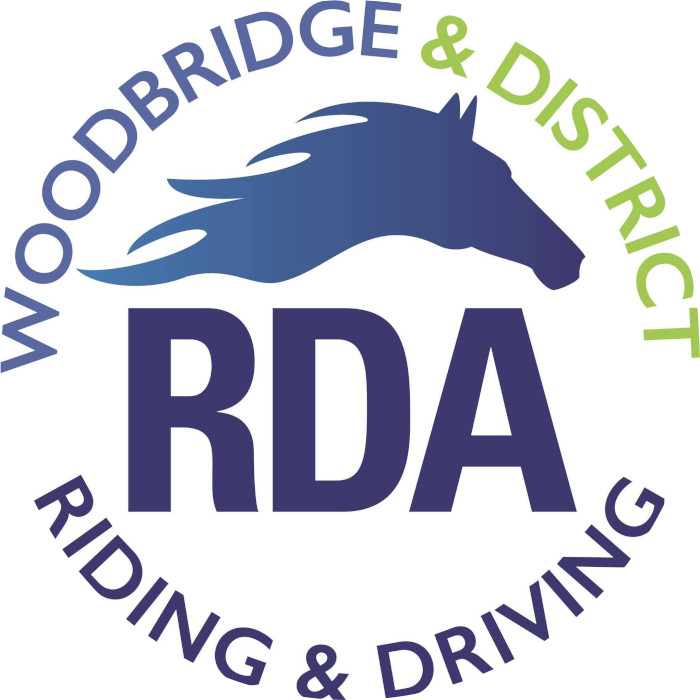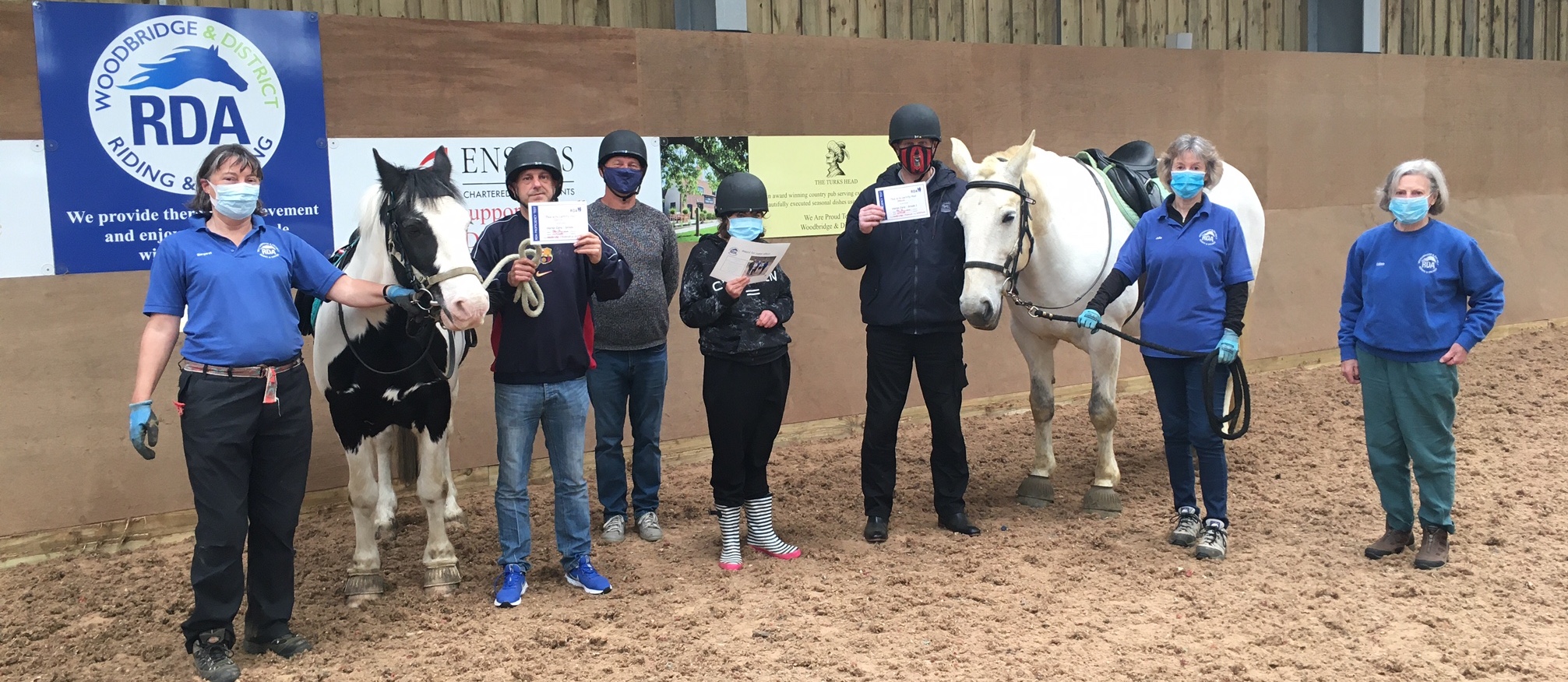Mental Wellbeing Case Study
The physical therapeutic benefits of RDA are well recognised, the benefits to mental wealth and wellbeing are less widely acknowledged. While the current Covid 19 pandemic has undoubtedly had a negative impact on everyone’s life, perhaps none more so than for those who have mental and physical disabilities. Isolation is a recognised issue, along with the loss of opportunities to exercise and also to enter into activities that relax and calm those most in need. Woodbridge and District RDA serves an area of identified deprivation in East Suffolk and daily supports a wide range of groups; improving their clients’ mental health and well-being by the sessions they provide.In an RDA UK survey during the lockdown period 95% of participants said that not being able to spend time with horses contributed to a reduced sense of mental wellbeing. For some this extended to worrying about the horses’ wellbeing and whether they will see their favourite horse again. To address this, we offered all of our regular participants 'Pony Time'; regular visits to our centre to spend time with our horses and ponies. A feedback survey we conducted confirmed this to very popular and so we extended the offering to include hands-on horse care and stable management activities.
Stone Lodge Academy is a Special School for students with complex moderate learning difficulties. They judge the impact of the equine therapy to be powerful, stating the volunteers have ‘nurtured the children and, through their kind approach, have enabled the children to be kinder and to develop relationships out of school in the community with adults. This is something they often find difficult to do.’
Initially the pupils were reticent around the ponies and noticeably stuck by each other. Handling a large animal, with a mind of its own is daunting, even with friendly volunteers to guide you. However, there was soon a visible change in both attitude and confidence. In later sessions, the students were casually stroking the ponies’ ears as they stood by them; holding conversations with the volunteers and beaming from ear to ear as they led their equine friends round obstacles. The change was remarkable. A member of staff from Stone Lodge Academy observed that on returning to school after each session, the students have been ’calm, ready for learning, attuned to other people and in such a better place.’ Parents state their children are generally reluctant to talk about their day at school. However, after a visit to Woodbridge and District RDA, they happily speak about their time at the stables. One student said, ‘I feel so happy, I feel I might spontaneously combust!’ Fortunately for everyone concerned, she didn’t and will return to improve her mental health and well-being still further; with help and expertise provided by all those at Woodbridge and District RDA.
Another group to benefit from the activities provided by Woodbridge and District RDA are the residents of the Tru Care 'Byways' assisted living facility in Saxmundham. Routine is paramount for those who live there and, as a support worker described it, ‘life was turned upside down,’ when the pandemic struck. Part of the carefully structured stability was the regular opportunity to attend riding sessions and when this was no longer possible, the residents felt bereft. Claire Hinitt, yard manager, responded to this need and offered Pony Time sessions for the residents. This was a chance to regain some routine and learn a range of new skills, including grooming and handling ponies, in the process.
Residents at Tru Care are supported to live as independently as possible and to develop skills that aid them in this endeavour. Groups have been attending sessions at Woodbridge and District RDA for over a decade. The positive impact over time has so clearly been seen that this chance to return was eagerly seized upon. The strength of this long-established relationship is evident in a statement made by a support worker accompanying a group, who said, ‘Claire and her volunteers recognise each person as an individual with their own needs. No-one is “put in a box” and there are no set expectations. Everything done here is bespoke and everyone achieves. They are learning skills without realising it’.
In some cases, these new activities will be the main focus for clients, for others they act as a 'gateway' allowing clients with emotional and mental health needs to familiarise themselves with our environment before joining in with our riding and carriage driving activities.
We continue to see strong demand for our services and thus a real opportunity to increase the reach and impact of our work. Research for the Alzheimer’s Society shows that social isolation and loneliness is a big health and social care challenge, increasing the risk of premature death along with the risk of developing certain diseases, including dementia. So, the next step in our plans is to adapt our Pony Time activity to meet the needs of those living with dementia, so that they and their families and carers can join us to revisit memories and create new experiences together.
© 2021 RDA (Woodbridge & District Group)


